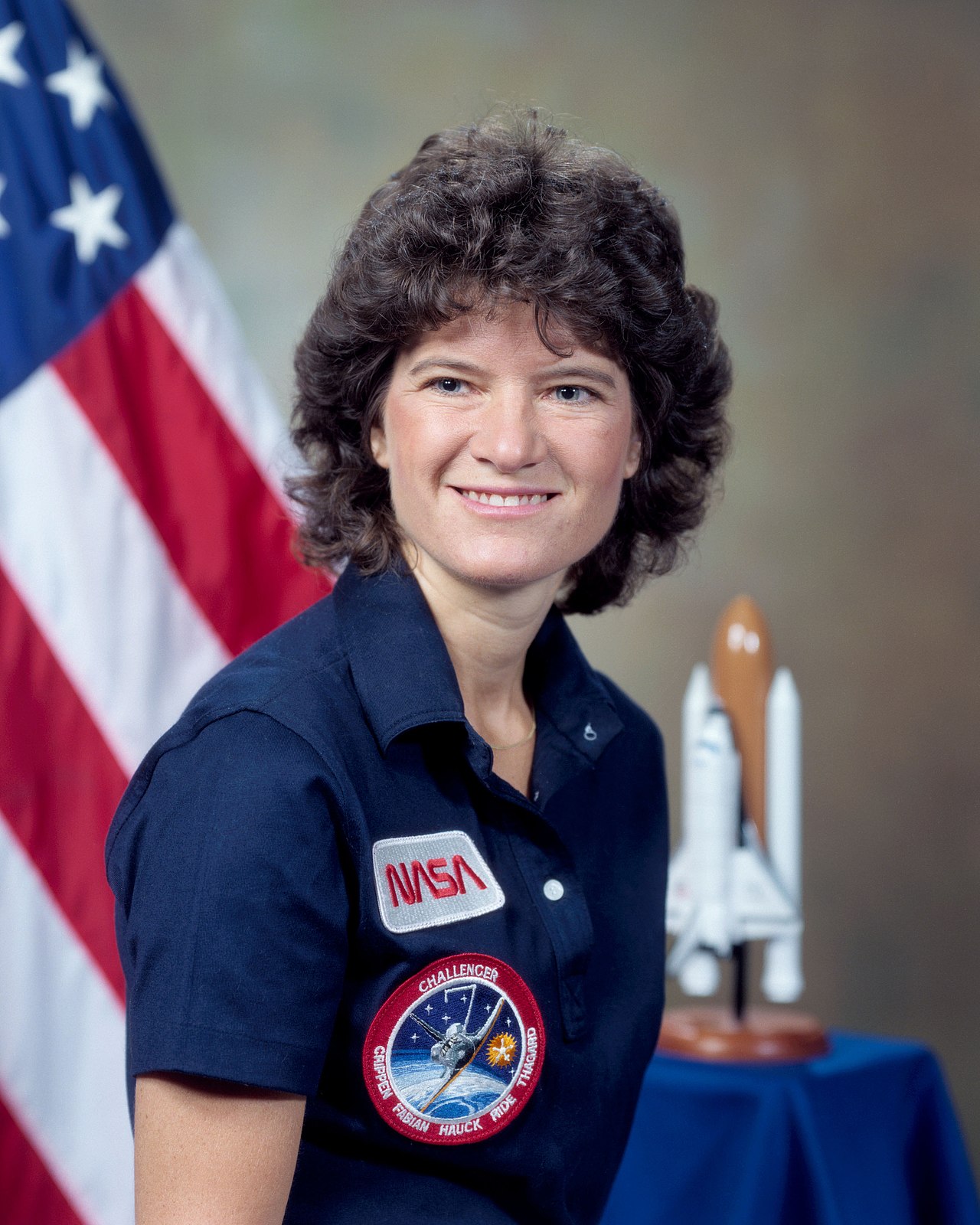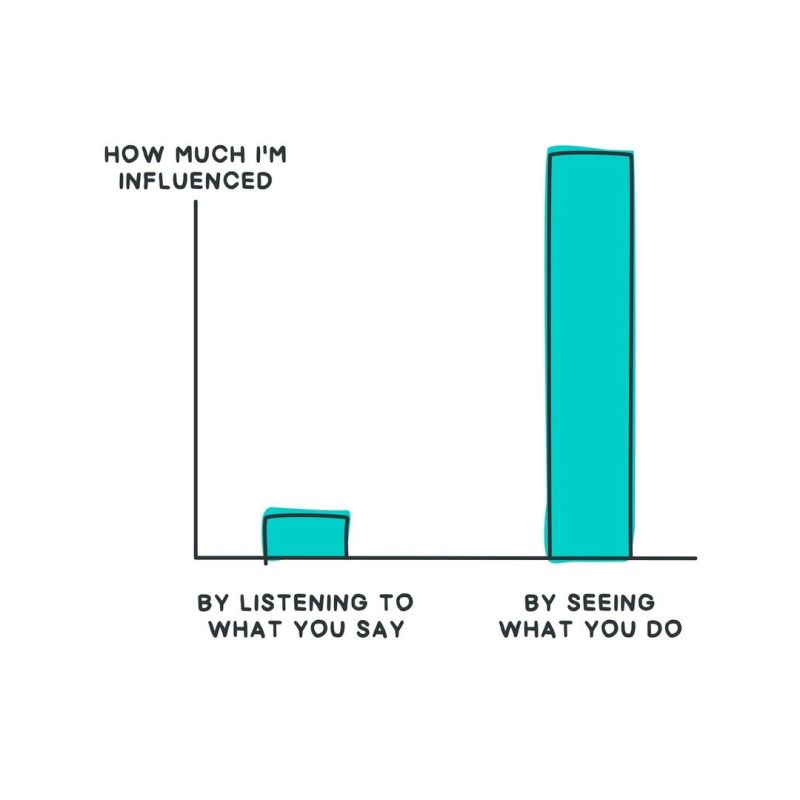
Image source: Wikipedia
The woman in this picture is Sally Ride. She is recognized as a space pioneer, being the first American astronaut who went to space. The life of a “first” person is rarely without challenges, especially until they are also an “only”. Sally was no exception.
In an interview (transcribed here), Sally shared that prior to her trip to space in 1983 on the space shuttle Challenger, NASA engineers asked her if 100 tampons would be enough for two weeks. [An organization that had already set foot on the Moon had doubts about the needs of a woman’s body!]
In the same interview, Sally also noted, “The engineers at NASA, in their infinite wisdom, decided that women astronauts would want makeup - so they designed a makeup kit… You can just imagine the discussions amongst the predominantly male engineers about what should go in a makeup kit.“ [The NASA History Office has also tweeted a picture of the makeup kit.]
Sally Ride: "The engineers at NASA, in their infinite wisdom, decided that women astronauts would want makeup - so they designed a makeup kit... You can just imagine the discussions amongst the predominantly male engineers about what should go in a makeup kit." #RideOn #Classof78 pic.twitter.com/dNZ51cWELH
— NASA History Office (@NASAhistory) January 16, 2018
Further reading: Did NASA Ask Sally Ride if 100 Tampons Would Be Enough for 14 Days in Space? | Snopes.com and Astronaut Sally Ride and the Burden of Being The First - The American Prospect
What is your reaction to the above story?
Infuriating? Hilarious? Both?
Did you think “Who would ever think it is a good idea for a group of men to decide what women need?” If yes, stick to that thought while reading the rest of this blog.
Some more stories …
Now let me share with you some more stories. Unlike the above true story, these stories are fictional but may be “inspired” by real life incidents. They may even trigger your memories of similarly themed true stories.
Welcoming the elderly people to the Paidthinkers Club
The President of Paidthinkers Club has been hearing several complaints that the club is not friendly for elderly citizens. He is a kind-hearted person with good intentions. He feels greatly pained and saddened that elderly people find the club unwelcoming. He is determined to drive change and make Paidthinkers Club feel inclusive for all people regardless of age.
He decides to form a committee for this purpose. He actively looks for people who are kind-hearted, enthusiastic, passionate, who care for elderly people, and who have good intentions. He ends up choosing ten people, whose ages peculiarly lie between 26 and 33.
Some people criticize the composition of this committee. They insist that the committee should be composed entirely (or almost entirely) of elderly people, as they would be better suited to represent, discuss, propose and implement solutions to the elderly people’s issues. However, the President dismisses these concerns as “non constructive” because the committee is full of kind-hearted people with good intentions who care for elderly people.
The poor people of Timbuktu
The Timbuktu country recently appeared in international news when an investigative journalist published a report on the problems faced by its poor people. Using unscruplous PR tactics, Timbuktu had projected itself as a champion of inclusion that treated everyone with equal respect. Timbuktu had even published its policy of zero tolerance for all forms of discrimination.
The country’s President had been aware of the differences between the official policies and the ground reality. He chose to ignore it because the poor people were cheap labour for keeping the rich people’s businesses profitable. However, now the situation had blown in his face as he began facing criticism from countries and organizations worldwide. He was now determined to address the problems. At the least, he had to pretend that he cared enough to convince international investors to not pull out their investments.
He made an official statement acknowledging the problem along with an elaborate apology but also mentioned that the problem will not be solved overnight. He promised the formation of a “Poor Inclusion Solutions Squad” (PISS) to work towards improving living conditions of the poor people. Although he did not specify clear goals or a timeline for the PISS to complete its work, the international community was filled with joy. “At least, it is a good first step”, they remarked.
He soon announced that in accordance with Timbuktu’s values, all Timbuktu citizens would get equal opportunity to join the PISS. Moreover, he announced full support to the PISS and that they would carry out their work from the prestigious Timbuktu Club in the capital city. The club’s rules prohibited non-members from entering the club and the President didn’t want to interfere with the club’s rules, so the applicants had to be Timbuktu Club members to join PISS. The club membership fee was 𝕋 5000 per month. The average income of poor people was 𝕋 500 per month. Thus, even though they were not explicitly prohibited, they were practically excluded from joining the working group. The same working group that was set up to work towards addressing their problems and making the country feel more inclusive to them.
Consequently, the PISS was filled with rich people who could afford the club membership fees. After a series of meetings, they decided to hold a monthly celebration where poor people would be given unlimited free ice-creams. They concluded that the poor people’s issues had been resolved and congratulated each other for their kindness.
ABC’s inclusive environment for Muslims
Acme Builders Corporation (ABC) had a diversity problem. Their staff had 40% Muslim employees, but this was not reflected in the leadership and other important roles across the company. The Muslim employees frequently complained about being treated as second-class citizens.
The company determined to address this problem and formed the Muslim Employees Overall Welfare (MEOW) Committee. The MEOW Committee consisted of twenty people, none of whom were Muslims. When a few employees (including both Muslims and non-Muslims) raised questions about this, the company’s leadership dismissed it as a non-issue with the following explanation:
Our company’s culture has been formed over several decades, and we cannot change overnight. Now is not the right time for inclusion of Muslim employees because our systems are not yet in a state to support it. Nonetheless, the people we have chosen in the committee have a passion for diversity and inclusion and they have good intentions. A few of them have read the Quran, some have been to a mosque a few times, some even have Muslim family members.
The employees who asked questions were labelled as “rebels” and accused of causing harm to the company.
This continued for a few more years, that is, until a scientist named Abdul Kalam joined the company. Abdul quickly proved to be a highly skilled scientist and impressed everyone with not only his technical prowess but also his attitude of caring for people around him. Abdul was soon wholeheartedly welcomed to the MEOW. This was celebrated as a great success story in the history of ABC’s diversity mission. The first Muslim employee to be included in a committee that works towards welfare of Muslim employees was obviously a watershed moment, which was only possible due to the company’s great inclusive leadership.
What do the above stories have in common?
They illustrate various ways by which diversity and inclusion should NOT be done.
Sally’s story is a subject of ridicule in “modern” times because it is now “obvious” that appointing a group of men to decide on the needs of a woman is a ridiculous idea. Nonetheless, incompetent and dishonest “leaders” continue using the same template in many other forms of discrimination, while simultaneously pretending to be champions of diversity and inclusion.
Knowing the issues of other groups of people, seeing those concerns among one’s friends and family, reading research papers on other groups of people, etc. is useful. However, these are no substitute for experiencing the problems yourself.
Having a “passion” towards diversity and inclusion and having “good intentions” is necessary but not sufficient.
Diversity and inclusion is not about:
- making occasional superficial celebrations.
- pretending to care.
- doing just enough to maintain a good public image.
- shutting down critics or shooting the messengers.
- making flimsy excuses for why things cannot be changed.
- gaming the system to enable privileged people to continue making decisions for others.
Diversity and inclusion is taking concrete meaningful actions, not talking or preparing Powerpoint slides about it.

Treating people with respect is the bare minimum expectation, it is not philanthrophy.
I conclude this blog post with the following groundbreaking idea:
If you form a working committee to genuinely support a certain group of people, choose people from that group as the committee members. Then enable and empower them to make the required changes to your systems.